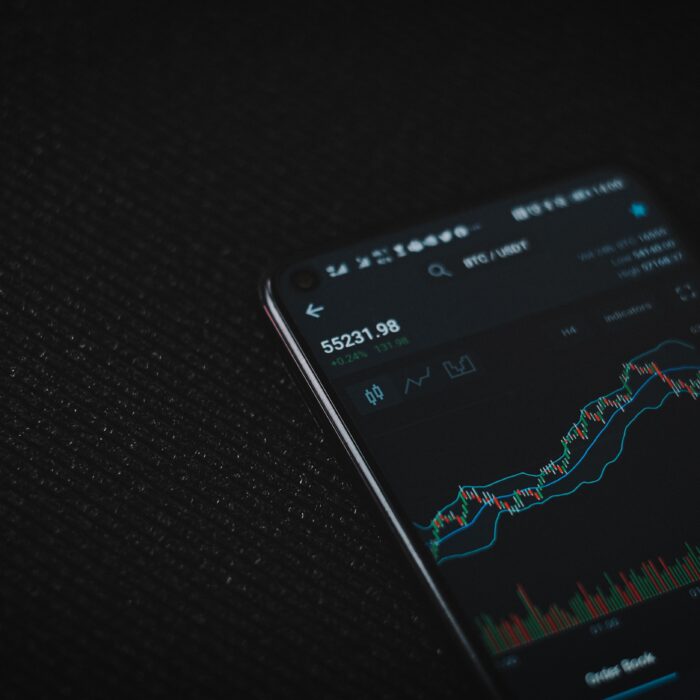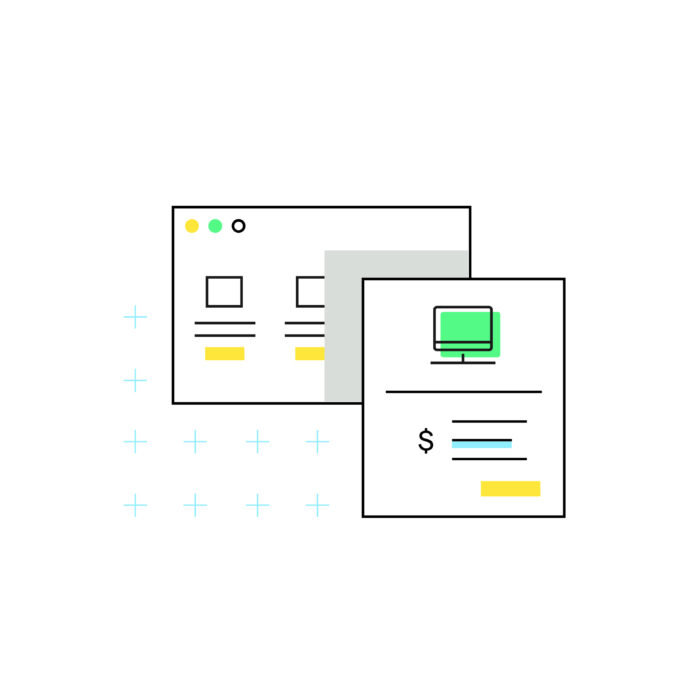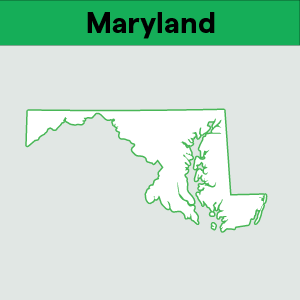What digital content creators need to know about sales tax
by December 14, 2024
Not so very long ago, if you wanted to sell your ideas or art, you created a tangible object like a book or painting and released it out into the world. And governments knew what to do with that when it came to sales tax.
Most states’ sales tax laws state that “tangible personal property”, such as a book or a painting, is subject to sales tax. In other words, if you sell a copy of a book, you’d charge sales tax on that transaction. But things get a little more complicated when it comes to things like eBooks or a digital art file. Are these items tangible? Some states say yes, others say no, and still others haven’t quite caught up to the fact that many transactions are now digital.
This post will delve into what digital content creators need to know about when to collect sales tax and what to do if you discover that you’re required to collect sales tax on your digital products.
The basics of sales tax for digital content creators
Sales tax is a percentage of a sale charged by a vendor to a buyer at checkout. Forty-six US states plus Washington D.C. have a sales tax, and states use the money collected from sales tax to pay for budget items like hospitals or roads.
In most cases, “tangible personal property” like a toothbrush or a lamp is taxable. (Though many states make exceptions for necessities like grocery food or medication.)
As mentioned above, some states still don’t consider digital products to be taxable, while many others have either passed laws or letter rulings stating that digital products are taxable in their states.
What does this mean for digital content creators when it comes to actually collecting sales tax?
When are digital content creators required to collect sales tax?
Sellers, of digital products or tangible products, are required to collect sales tax when their business meet these criteria:
- The seller has sales tax nexus in a state
- The products they are selling are taxable in their nexus state, and
- Nobody else is collecting sales tax on their behalf (Online marketplaces like Amazon and Etsy are required to collect sales tax on a 3rd party seller’s behalf. More about this later!)
Sales tax nexus
Sales tax nexus is just a fancy way of saying a “significant connection” to a state. A business (and this includes sole-proprietors, such as authors or digital artists) is required to collect sales tax if they have nexus in a state.
The following generally create sales tax nexus:
- Having an office, store or other location in a state (even a home office)
- Having an employee, salesperson, contractor, etc. in a state
- Owning a warehouse or storage facility in a state
- Storing inventory in a state (such as in an Amazon FBA warehouses or other 3rd party fulfillment center)
- Having a third-party affiliate in a state
- Temporarily doing physical business in a state for a limited amount of time, such as at a trade show or craft fair
- Economic nexus – Making a certain amount of sales in a state (either a certain dollar amount or a certain number of transactions)
Many of these factors don’t apply to digital product creators, but a seller always has nexus in the state where they do business, even if it’s just from the kitchen table. And if the business grows and begins hiring employees in other states, or ends up also selling tangible goods that are stored in a warehouse, those factors all create sales tax nexus.
And as of the South Dakota v. Wayfair Supreme Court ruling in 2018, retailers who gross over a certain amount or over a certain number of transactions in a state have “economic nexus” and are required to collect sales tax from buyers in that state even if they don’t have an office, warehouse or other business activity in the state’s borders.
This has also added a wrinkle for international sellers with customers in the U.S. Though your non-US-based business might not have any personnel or physical presence in the US, you may still have “economic nexus” in one or more US states.
You can read more about what creates economic nexus here. Worried you might have economic nexus? TaxJar’s Economic Nexus Insights Dashboard provides more information.
Digital product taxability
The next thing a digital content creator needs to consider is whether the product you are selling is actually taxable.
We have a handy map of states that do and don’t consider digital goods taxable, but keep in mind that this is changing all the time, so please contact a sales tax expert if you have questions about your specific business.
That said, whether or not you are required to collect sales tax also depends on what your product is and how you are selling it. For instance, some states consider a digital film to be taxable if you purchase and download it to keep in perpetuity, but non-taxable if you only “rent” it for a short period of time.
In another instance, some states consider digital classes to be non-taxable if they take place live, but taxable if they are packaged and sold online with no “live” component.
And last but not least, some states consider the digital copy of a physical item to be non-taxable if the physical item is not taxable. For example, in Colorado physical newspapers that qualify as a “legal publication” are not taxable. And since a digital copy of that type of newspaper is considered another form of the newspaper, then a digital newspaper wouldn’t be taxable. On the other hand, non-“legal publication” newspapers, books, music, movies, etc. in digital form are taxable in Colorado in both physical and digital format.
Why is digital product taxability so different from state to state? Though we are now accustomed to watching movies online or downloading an eBook, state laws often lag behind the times. Some states have made up their minds about whether digital products are taxable or non-taxable in their states, but others simply haven’t made a ruling yet. Check back here at the TaxJar blog for updates as new states decide on digital product taxability.
How digital products are sold
This is where many digital content creators are in luck!
Do you sell your eBooks through Kindle KDP? Your cross stitch patterns through Etsy? Or do you provide digital art to your fans via Patreon? Nearly every U.S. state with a sales tax requires that large online marketplaces like Amazon and Patreon collect sales tax on third-party sellers’ behalf. (Starting January 1, 2023 Missouri will become the final state to require this.)
So if you sell via Kindle, Patreon, Etsy, eBay or another online marketplace, you are generally in luck and do not have to collect sales tax on sales made via those platforms. But be cautious and always make sure that the platform is collecting sales tax on your behalf before you decide you aren’t required to collect!
Let’s look an example:
Say you are based in Colorado, where digital products are taxable, and sell your eBooks via Amazon and through your own website. Since you live in Colorado and have nexus there, you’d be required to collect sales tax on any taxable sales to buyers also located in Colorado. (Or, in the case of digital goods, if their billing address is in Colorado.)
In this case, Amazon will collect any sales tax due on your behalf when you make a sale through their marketplaces. But, if you make a sale through your independent website to a buyer in Colorado, or another state where you have nexus, then you are still required to collect sales tax from that buyer.
To put it another way, if you sell to a buyer in your Colorado hometown through Amazon? No need to collect sales tax. But you sell to a buyer through your independent website and their billing address is also in Colorado? Then you are required to collect sales tax on that digital product.
We have a sales tax guide for Patreon creators here. And more information for creators who use non-fungible tokens (NFTs) to sell your art here.
And more information on why large online marketplaces are required to collect sales tax on behalf of 3rd party sellers here.
I need to collect sales tax. Now what?
If you have determined that you are required to collect sales tax on your digital products, what do you do next?
The first step is to register for a sales tax permit in your nexus state(s).
Once you receive your permit, set up sales tax collection on any online shopping carts you use. Also double check that any online marketplaces you use are collecting and remitting sales tax on your behalf.
When you receive your sales tax permit, the state will also instruct you when and how often to file your sales tax returns. This is generally monthly, quarterly or annually. As a general rule of thumb, the more revenue you gross in a state, the more often you’ll be asked to pay. Also, don’t forget that every state is slightly different. One state’s sales tax due date might be on the 20th, while another state’s might be on the last day of the month, or even another day.
When it comes time to file your sales tax returns, you can file manually or use a service like TaxJar AutoFile.
Why AutoFile? States don’t make it easy to file sales tax. Rather than simply asking you how much sales tax you collected from buyers in the state, they require that you determine how much sales tax you collected from customers in each county, city and special taxing district. TaxJar Reports connect to the online shopping carts on which you sell and provide this state and local tax info if you choose to file manually. And TaxJar AutoFile files for you, taking all the pain out of sales tax filing!
Sell digital products? TaxJar is here to help.
If figuring out in which states digital products are taxable and from which customers you should collect sounds confusing, TaxJar has your back.
With the TaxJar API, all you have to do is let us know what type of product you are selling by applying the correct product tax code. From there, we’ll ensure that you collect (or don’t collect) the right amount of sales tax every time you sell your products.
Ready to automate sales tax? Learn more about TaxJar and get started.








